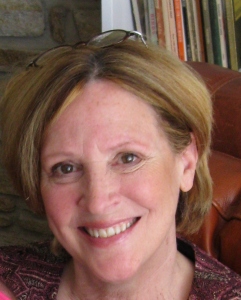The last date I had was a set up. According to our mutual friend, who arranged it, we were a perfect match.
The first thing I notice about my date is how seriously he takes his martini. His order comes with three instructions, and he warns the waiter he’ll be able to tell if any one of them hasn’t been followed. Why would anyone take liquor so seriously? (thought the woman who drinks wine out of a box). Or — to put it another way — this may be yet another man who won’t get me one bit.
He says, “I’ve just moved back to Baltimore after many years in Manhattan.”
I say, quietly, “I lived in Manhattan once, in the early 70s.”
“Oh?” I can tell I’ve interrupted his flow because his response is a bit snappy. Did I mention his ancestors may have traveled over on the Mayflower? Our first six minutes together have led me to this theory. “Where?” he asks but I can tell he’s just being polite.
“Upper West Side. “The Apthorp.”
“Really?” he perks up. He starts throwing out names — one of them famous — of people he knew at The Apthorp. He tells me he went to a few parties there. He orders another drink.
* * *
When Paul Goldberg said, “Wait!” on that sidewalk in Cortland NY, I turned back. And then I walked right into his life. By the evening he was making me tea and we were spilling our secrets.
His plan had been to go to Berkeley, where he felt he could do the most good. After two days of being together, we realized we couldn’t be apart. But there was a pragmatism to our love, too. We sensed my oh-so-new conversion to left-wing politics wasn’t ready for a cross-country move quite yet.
Over toast with grape jelly on our fifth morning together, we decided to relocate to Manhattan — where he’d grown up and his mother still lived. We’d stay with her until we found our own place.
My parents always referred to 1970 as “Ugh, that year.” I didn’t see their point until about 1980. One minute I was the usual college coed, asking for money and fibbing about grades, boys, and how I spent my time. Suddenly I was lecturing them about Huey Newton and male chauvinism. I called them to announce — with gravitas leaking from every pore of my body — my intention to leave school and move in with Paul.
Here’s where they landed: “Just understand you won’t be welcome home for Thanksgiving. Or Christmas.” After that my parents and I went to our respective corners and had a series of miserable conversations that went nowhere.
And soon after that, Paul and I emerged from the subway station at 79th and Broadway, and I took a look at my new home.
The Apthorp is an Italian Renaissance Revival beauty, taking up a whole city block. It comes with iron gates and limestone sculpture and a courtyard rimmed with trees and lamp posts. The men who stood guard at the entrance called Paul by name. The grandness of the place got more in focus the closer we got to his mother’s apartment. The elevator operator in a uniform. Fresh flowers. If I’d been paying more attention in Psychology class, I wouldn’t have been at all surprised that this grandeur spawned Paul Goldberg, Leader of the Revolution.
I kept rubbing my sweaty hands on my skirt as he opened the door for us, sure Paul’s mother was the kind of woman who shook hands when she met you. I was pretty sure she wasn’t a hugger. But maybe she was.
We waited. It seemed a while before she walked into the living room.
“And is this Linda?” She said my name as though she wasn’t sure she had it right. Pretty quickly I knew there would be no need for dry hands. I was not what she was expecting.
“I see you’ll be staying with us,” she said as she looked down at my luggage. “Perhaps my son might have let me in on the secret.”
And that was my welcome to the storied Apthorp building. This signaled the start of my attempt to climb into the bosom of Paul’s family since I was pretty sure mine would never talk to me again.
As I slept that night, ambulances careened up and down Broadway and woke me. I jumped every time. Paul told me I’d get used to it.
